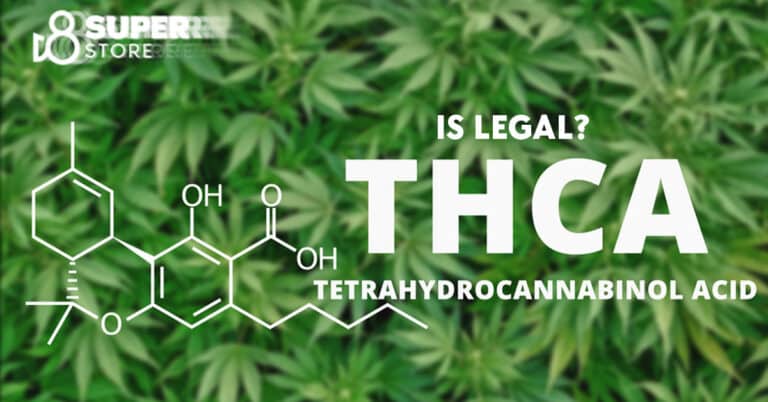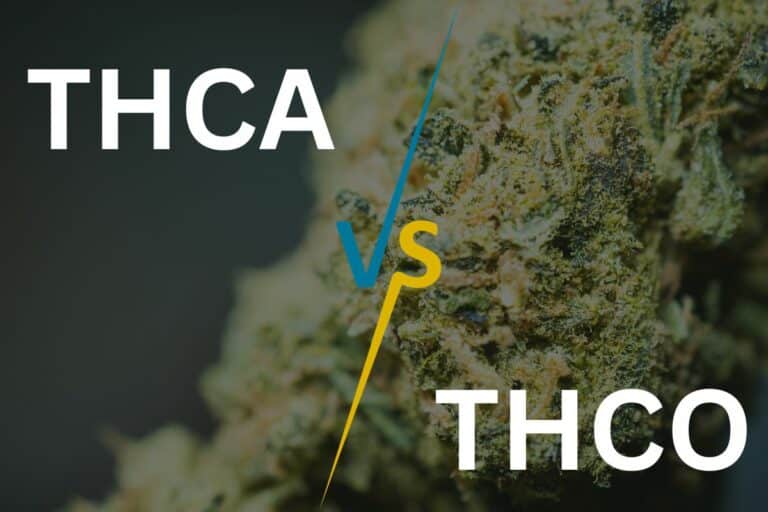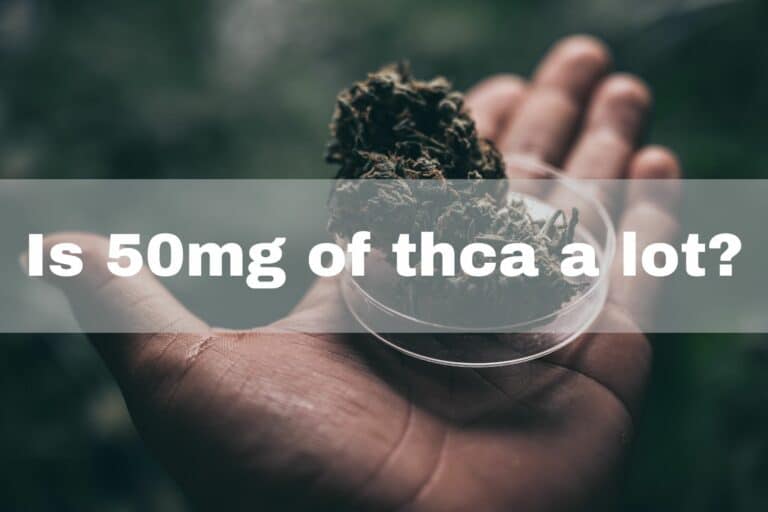Is Delta-11 THC Legal in Indiana? Unveiling the State’s Cannabinoid Laws
Trying to understand if Delta-11 THC is legal in Indiana is as tough as catching a greased pig at a county fair – it’s challenging, thanks to ever-shifting cannabis laws. Indiana marches to the beat of its own drum, with regulations on substances like Delta-11 THC that don’t always align with nationwide standards. Folks are on the hunt for a clear-cut rundown on the legality of Delta-11 and other hemp goodies in the Hoosier State.
Delta-11 THC is one of the many cannabinoids found in the cannabis plant, and its legal status often falls into a gray area due to its chemical similarity to Delta-9 THC, the primary psychoactive substance found in marijuana, which is illegal federally and in Indiana for recreational use. However, if a product containing Delta-11 THC is derived from hemp and meets the federal requirement of containing less than 0.3% Delta-9 THC, it may fall under the legal umbrella created by the 2018 Farm Bill for hemp-derived compounds. The intricacies of state and federal laws can lead to confusion about what is permissible and what might lead to legal consequences.
Table of contents
Legality of Delta-11 in Indiana
As you navigate the complexities of cannabinoid legality, understanding the status of Delta-11 THC in Indiana is crucial. This section details the current laws, the impact of state and federal legislation, and how these regulations contrast with those surrounding Delta-9 and Delta-8 THC variants.
Current Legal Status
In Indiana, the legal status of Delta-11 THC remains under the same scrutiny as other THC isomers due to its psychoactive properties. As of now, no explicit legal framework references Delta-11 specifically, making its legality somewhat ambiguous. You should be cautious and consult legal experts or local authorities for the most current information.
Indiana Legislation and the 2018 Farm Bill
The 2018 Farm Bill plays a pivotal role, as it federally legalized hemp-derived cannabinoids with a THC content below 0.3% on a dry weight basis. Indiana adheres to this federal guideline, as specified in Senate Enrolled Act No. 52. However, the bill does not differentiate between individual THC isomers, thus including Delta-11 under its umbrella, provided it’s sourced from legal hemp and the concentration of THC meets the required threshold.
Comparison with Delta-9 and Delta-8 THC
Delta-9 THC is the most well-known psychoactive compound in cannabis, and its legal status is more definitive. At the federal level, and in Indiana, Delta-9 THC is classified as a controlled substance if derived from marijuana, not hemp. Contrastingly, Delta-8 THC has gained legal acceptance in Indiana, provided it complies with the same hemp-derived, low THC concentration requirements of the Farm Bill. Comparatively, Delta-11 THC is lesser-known and lacks specific legislation, but its legality is likely analogous to that of Delta-8 THC, subject to the same criteria of hemp origin and THC concentration.
Scientific Profile of Delta-11
Before exploring the intricacies of Delta-11, you should understand that it’s a distinct cannabinoid with its own chemical structure, psychoactive properties, and potential health implications.
Chemical Structure and Effects
The chemical structure of Delta-11 THC (tetrahydrocannabinol) is similar to that of Delta-9 THC, the primary psychoactive component in cannabis. However, Delta-11 has slight molecular variations that may affect how it binds to your body’s cannabinoid receptors. The effects are often attributed to this interaction, which can include changes in perception, mood, and consciousness.
Psychoactive Properties
Delta-11 is a psychoactive cannabinoid, meaning it can produce a high, though the intensity of the high can vary. Compared to Delta-9 THC, Delta-11 may induce a weaker high, depending on the dosage and your individual response to cannabinoids. The psychoactive effects contribute to its potential therapeutic benefits but also to its side effects.
Health Implications
When considering health benefits and side effects, Delta-11 THC, much like other cannabinoids, shows promise in certain contexts. Safety and health implications depend on various factors, including consumption methods and individual patient characteristics. However, side effects such as altered sensory perception and coordination issues may occur. Symptoms can also differ based on each person’s unique endocannabinoid system. As with any cannabinoid, it’s important to approach Delta-11 with caution due to the complex ways it can interact with your body.
Consumer Information
When considering the cannabis products derived from hemp, it’s essential to be informed about their legal status, availability, and characteristics, particularly concerning delta-11, a cannabinoid finding its way into the market.
Products and Availability
Delta-11: You may encounter delta-11 products such as gummies and extracts. These items are typically marketed for their potential to provide relief and relaxation. Given that delta-11 is a relatively new addition to hemp-derived cannabinoids, its availability may vary, with products more sporadic compared to delta-8 or delta-9 THC products.
- Availability in Indiana: The market is witnessing a growing presence of delta-11, and due to its hemp origin, it might be found alongside other hemp-derived THC products. However, the exact legal status should be verified as state laws are subject to change.
Delta-11 vs Other Cannabinoids
When comparing delta-11 with its counterparts like delta-8 and delta-9 THC, focus on the effects and legal standing:
- Effects: Delta-11 is claimed to offer similar effects to delta-8 and delta-9, such as anxiety relief and pain management, though the intensity and duration may differ. Evidence and research into delta-11’s specific effects are still evolving.
- Legality: While delta-9 THC (commonly found in marijuana) remains federally illegal, hemp-derived products such as CBD and delta-8 have found legal acceptance under specific conditions set forth by the 2018 Farm Bill. The legality of delta-11 in Indiana hinges on its derivation from hemp and whether it falls within the same legal framework as other cannabinoids like delta-8.
It’s crucial to stay current with Indiana’s state laws regarding cannabis and hemp products, as legal interpretations are continually in flux.
Regulatory Considerations
When navigating the legal landscape of Delta-11 in Indiana, you must understand the complexities of both state and federal regulations and be aware of potential legal changes on the horizon.
State vs Federal Regulations
Indiana Law: You need to be aware of the Indiana state laws which classify certain substances under controlled substances. Delta-11, similar in structure to Delta-8 and Delta-9 THC, may fall Under these regulations. As per the current Indiana Code, marijuana is banned; including for medical purposes. However, Indiana lawmakers from the General Assembly periodically review and amend these regulations, affecting the sale and possession of compounds like Delta-11.
Hemp-derived Products: On the flip side, legislation from the 2018 Farm Bill may provide some room for hemp-derived products. Since Indiana aligns its definition with the federal definition, certain products containing less than 0.3% THC content on a dry weight basis are legal.
Federal Law: Despite some state leniencies, you should remember that at the federal level, substances with more than 0.3% THC content remain federally illegal. Moreover, the FDA is in charge of regulating and classifying compounds and hasn’t given clear directives regarding Delta-11.
Potential Legal Changes
Ongoing Studies: Agencies, including the FDA, are conducting studies to understand the impacts and potential medical benefits of cannabinoids, which could influence future legislation.
National Organizations: You should keep an eye on announcements from organizations like the National Organization for the Reform of Marijuana Laws (NORML), as they advocate for change and provide information on shifting legal landscapes across states like Michigan, Kentucky, Maine, and Colorado, which may in turn inform Indiana laws.
Restrictions and Reviews: Indiana lawmakers may introduce new bills or amend existing legislation that could liberalize or further restrict the use of compounds like Delta-11. The evolution of neighboring states’ policies often propels changes, making it imperative to stay current with both local and national regulatory trends.
Usage and Impacts
Delta-11, while still relatively unknown, has various implications for you in terms of legal usage and medical potential. It’s important to understand the personal experiences reported, its application in medical therapy, and the current scope of research around this compound.
Personal Experiences and Reports
Most personal accounts suggest Delta-11’s euphoric and relaxation effects are significant, somewhat akin to Delta-9-THC, the main psychoactive ingredient in cannabis. You might find anecdotes reporting relief from stress and anxiety; however, there are also instances of adverse effects like dry mouth, lethargy, and heightened paranoia in some users. Considering its potency, you might want to be cautious about its consumption, especially in states like Indiana where cannabis-derived products are under tight regulation and possession can classify as a Class B misdemeanor.
Medical and Therapeutic Use
Delta-11, as a minor cannabinoid, intrigues many physicians and those suffering from chronic pain or epilepsy due to its potential therapeutic benefits. Small-scale studies hint that cannabinoids can help alleviate certain symptoms, but it’s imperative to consult with a healthcare provider before considering it as a treatment option. CBD oil, which is legal in Indiana, is commonly preferred by Hoosiers for therapeutic uses due to its non-intoxicating properties.
Research on Delta-11
The research investigating Delta-11’s effects and metabolism is currently limited. While anecdotal evidence suggests Delta-11 could have a range of benefits, you should be aware that much of the evidence is not yet supported by extensive clinical research or studies. Some early research indicates promising results, but the scientific community is awaiting more rigorous and controlled studies to understand the full potential and safety profile of Delta-11.
Detection and Legal Concerns
Understanding the complexities of delta-11 detection and the legal nuances in Indiana can help you navigate the challenges posed by evolving cannabis laws and varied capabilities of drug tests.
Drug Testing and Delta-11
When you undergo a drug test, particularly those designed to identify the presence of cannabinoids, Delta-9 THC—the primary psychoactive component in marijuana—is typically the main focus. However, since Delta-11 shares a chemical structure similar to Delta-9 THC, it may show up on a drug test. Standard drug tests assess metabolites produced from the breakdown of THC, so if you’ve used a product containing Delta-11, your test could return a positive for cannabinoids.
- Detection in Drug Tests:
- In urine: Delta-11 could result in positive tests for THC up to several days after use.
- In hair: Drug tests might detect THC metabolites for a longer duration.
Boldly put, if you consume Delta-11 products, you should be aware that you could be at risk of failing a drug test, which is particularly important if you’re subjected to routine drug tests for employment or other official purposes.
Legal Consequences of Use
In Indiana, possessing, dealing, or using products that contain THC can lead to “class B misdemeanor” charges if they are derived from marijuana and not a legal hemp product. It is your responsibility to ensure that any cannabinoid product, including Delta-11, is sourced from the legal Cannabis sativa plant, namely hemp, which must contain less than 0.3% THC to be considered legal at a federal level.
- Legal Thresholds:
- Hemp-derived: Products containing less than 0.3% Delta-9 THC are legal.
- Marijuana-derived: Products above the legal threshold are considered illegal.
Possession charges can lead to a hefty fine and potential jail time. As for the vendors, they must comply with both state and federal regulations when selling Delta-11, ensuring that their products fall within the legal THC limit. Failure to do so can result in a ban or banned status and consequent legal ramifications.
You should also be aware of the status of recreational marijuana which remains illegal in Indiana, differentiating it from states where it is permitted. Familiarize yourself with the latest state laws regarding THC to avoid unintended legal issues.
Safety and Quality Control
Understanding the legal and safety aspects of cannabinoids like delta-11 and the importance of quality control ensures you make informed decisions when considering products derived from cannabis or hemp.
Standards and Testing
To ensure the safety and quality of delta-11 THC, products containing this cannabinoid undergo rigorous testing protocols. In Indiana, manufacturers are required to test for pesticides, heavy metals, and the accurate concentration of cannabinoids to certify products as safe for consumption. These tests help to ensure that the products you use meet the state’s stringent regulatory requirements and protect you from potentially harmful substances.
- Cannabinoid Concentration: Ensures the product contains the advertised amount of delta-11 THC.
- Pesticide Screening: Identifies the presence of harmful chemical residues.
- Heavy Metal Analysis: Detects toxic metals like lead or mercury that could pose health risks.
Consumer Safety Tips
When considering the use of delta-11 THC products, it’s essential to prioritize your safety:
- Choose products from reputable sources that provide transparent test results.
- Verify that the products are sourced from organic hemp to minimize the risk of pesticide exposure.
- Look out for comprehensive labeling that lists all ingredients and states clearly the product’s cannabinoid content.
- Be aware of the potential side effects; start with a low dose to understand your body’s response before increasing dosage.
- Usage of cannabinoids can have individual effects, so ensure you’re in a safe environment when trying new products.
Frequently Asked Questions
The legal landscape for cannabinoid derivatives is complex and varies from state to state. In this section, you’ll find precise answers to common questions about the status of Delta 11 and related compounds specifically in Indiana.
What is the legal status of cannabinoid derivatives in Indiana?
In Indiana, cannabinoid derivatives have been subject to legal scrutiny, but their status often depends on the specific compound and its source. As of this writing, the law addresses the concentration of Delta-9 THC, the psychoactive component commonly found in cannabis plants.
Are there any recent changes to how Indiana regulates novel cannabinoids?
While there are not always updates on the regulation of cannabinoids, it’s essential for you to keep abreast of new legislative developments. Indiana has been known to alter its approach to novel cannabinoids, which could impact the legality of Delta 11.
How does Delta 11 compare to Delta 9 in terms of legal status?
Delta 11 is less well-known than Delta 9-THC, the main psychoactive substance in marijuana. The legal status of Delta 11 in Indiana hinges on how it’s sourced and its THC levels relative to state law concerning controlled substances.
Can you discuss the federal legality surrounding Delta 11 compounds?
Federally, the focus often lies on the distinction between hemp and marijuana, and the threshold of Delta-9 THC content that classifies a product as a controlled substance. It’s important to understand that federal law may not directly address Delta 11, yet its implications could affect its legality.
Will using Delta 11 products result in a positive drug test?
The specific metabolism of Delta 11 in your body and the type of drug test used may influence the results. Generally, usage of cannabinoid products containing THC might lead to a positive drug test.
What are the legal criteria for cannabinoid products in Indiana?
In Indiana, cannabinoid products are assessed based on their Delta-9 THC content. By state law, products must contain less than 0.3% Delta-9 THC by dry weight to be considered legal hemp-derived products.








